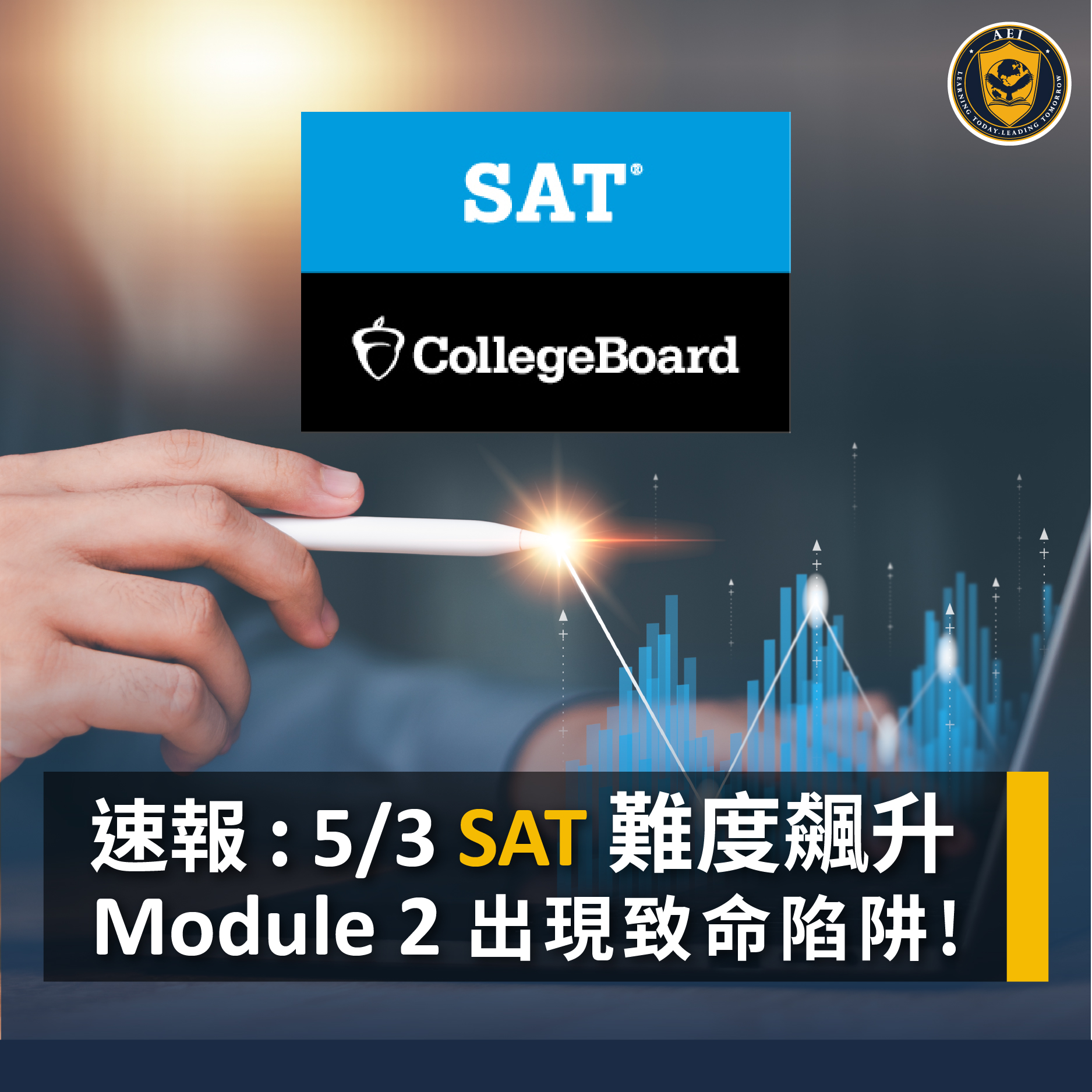In today's educational environment, the choices of international high schools are becoming more and more diversified. Parents and students are often confused when facing the two mainstream curriculum systems, AP and IB. AEI is committed to providing you with professional education planning advice. In today’s article, we will help you better choose a suitable course path for your child!
1.AP with IB Course Overview
AP (Advanced Placement) and IB (International Baccalaureate) courses have their own characteristics, targeting different learning needs and future goals.
- AP Course features:
- Flexible choice: Students can choose subjects based on their strengths.
- AEI recommends: Choose more than 5 AP courses covering different learning stages to comply with the AP course recommendations of each university.

- IB Course features:
- Comprehensive development: Students are required to take elective courses in liberal arts and sciences to maintain an academic balance.
- AEI recommendation: Flexibly adjust the curriculum according to the six major subject modules to adapt to IB curriculum recommendations and personal development needs.

2. Considerations before preparing to choose courses
Before choosing the right course, please consider the following aspects carefully:
- The specific requirements of the target country and institution for studying abroad.
- Students’ interests, professional direction and learning ability.
- When considering AP, do you have enough energy to handle the challenges of multiple courses?
Different GPA calculation methods may affect students' choices for further studies:
- Top schools in the United States generally require a GPA of about 3.7!
- In the UK, admissions are based on average subject scores, and prestigious schools such as Oxford and Cambridge often require a GPA of 90+.
3. Smart course selection strategies
- Choose courses based on target schools:
- Choose courses based on the admissions standards of your preferred school and keep your GPA stable.
- Choose courses based on personal interests:
- Choosing courses related to your interests can increase your learning motivation, and pay attention to the difficulty of the courses to ensure excellent exam results.
4. AP with IB In-depth analysis of the course
- AP Course Advanced Guide:
- AP courses offer 38 subjects, allowing students to demonstrate their academic direction and expertise.
- Most universities accept AP scores of 3 or above for college credit.
- APCourse Recommended Subjects: Biology, chemistry, economics, mathematics, advanced mathematics (calculus), law, history, sociology, etc.
Choose courses at different levels
To ensure academic performance and competitiveness for future applications, students are advised to carefully select courses from the following three levels:
- Courses recognized as difficult: English Language and Literature (2 courses), Calculus BC, Statistics, U.S. History, World History, European History, Chemistry, Physics C, etc.
- Science courses: Biology, Chemistry, Physics 1 and 2, etc.
- Courses related to university majors: psychology, economics (2 subjects), computer science (2 subjects), environmental science, human geography, etc.
Regular course selection formula
According to students’ professional direction and academic ability, you can refer to the following course selection model:
- Recommended courses for business students: Macroeconomics and Microeconomics (2 subjects), Calculus BC, and Statistics.
- Environmental science students are advised to choose the following courses: Calculus BC, Statistics, Biology, Chemistry, and Physics (3 subjects).
- Recommended courses for media students: Economics (2 subjects), Psychology, English Language and Composition, English Literature and Composition, and History.
- Recommended courses for biological science students: Calculus BC, Statistics, Biology, Chemistry, Physics 1&2.

- IB Course details:
- The IB curriculum consists of six subject groups and requires students to develop comprehensively.
- The IB curriculum places special emphasis on the development of writing and critical thinking.
- Recommended subjects for the IB curriculum:HL Mathematics (AA), History, Biology, Psychology, Visual Arts
IBCourse Structure Overview
IB courses are divided into standard level (SL) and advanced level (HL), allowing students to choose the appropriate level of challenge based on their abilities and academic goals:
- standard level (SL): Provides basic and comprehensive subject knowledge, suitable for most students.
- Advanced level (HL): Greater depth and higher challenge, designed for students with higher ambitions.
Because the IB curriculum emphasizes both arts and sciences, students must choose courses from six major subject groups. This design effectively avoids the problem of students' partiality and ensures balanced subject development.
IBCore features of the course: independent study (IA)
Whether in liberal arts or science, IB courses require students to complete an independent study (IA). IA is usually an academic research report that requires students to have excellent English writing skills and literature reading skills. This is not only a challenge for students, but also a valuable academic exercise that lays the foundation for academic writing and research in future universities.
choose HL and SL strategy
- Professional relevance selection: If you plan to apply for business, it is recommended to choose Mathematics HL; if it is science and engineering, Mathematics and at least one science course should be HL.
- Strategies for pursuing high scores: On the basis of ensuring other prerequisite courses, you can choose subjects that you are good at and easy to obtain high scores as HL.
- Personal interests and abilities: For subjects that are of personal interest but difficult to obtain high scores, you can choose SL to ensure the fun of learning and the stability of your grades.

Through the introduction in this article, I hope you will have a more comprehensive understanding of AP and IB courses. When actually choosing courses, please also choose appropriate subjects and levels based on your personal learning ability and professional needs! We hope AEI's professional advice will help you make wise choices about your future academic and career paths.
If you need further AP or IB course guidance and advice, please feel free toContact us! 🚩





